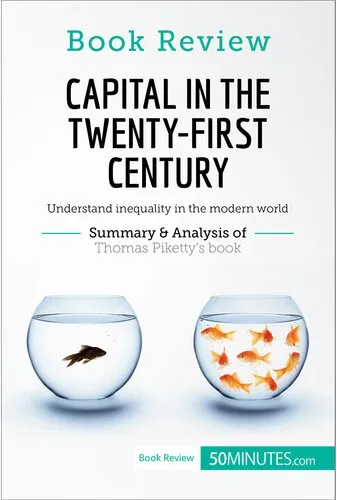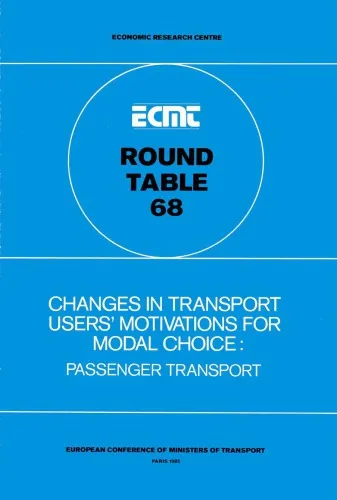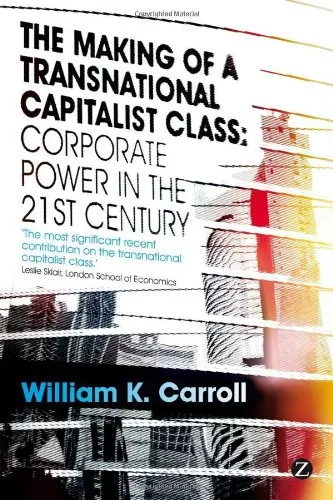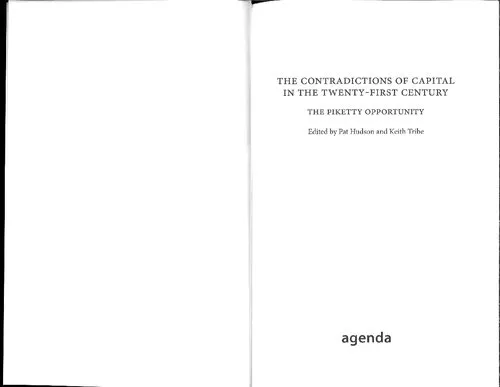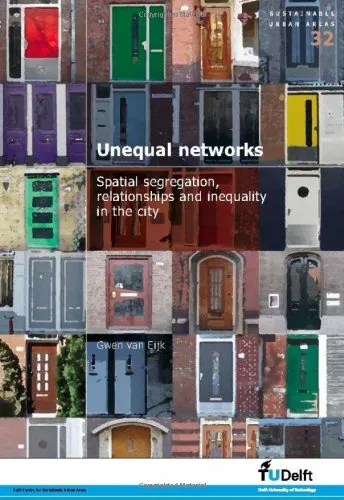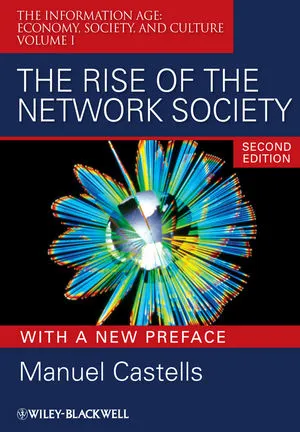Book Review: Capital in the Twenty-First Century by Thomas Piketty: Understand inequality in the modern world
3.5
Reviews from our users

You Can Ask your questions from this book's AI after Login
Each download or ask from book AI costs 2 points. To earn more free points, please visit the Points Guide Page and complete some valuable actions.کتاب های مرتبط:
Introduction to 'Book Review: Capital in the Twenty-First Century by Thomas Piketty'
Diving deep into the economic and social phenomena that have shaped our contemporary world, 'Capital in the Twenty-First Century' by Thomas Piketty is a groundbreaking exploration of wealth and inequality. In response, 'Book Review: Capital in the Twenty-First Century by Thomas Piketty: Understand inequality in the modern world' offers readers a profound and analytical insight into Piketty's extensively researched work, aiming to bridge the gap for those who seek to understand the dynamics of capital and the persistent disparities it generates in modern societies.
Piketty's original work embodies a comprehensive analysis of economic data, ranging over several centuries, to highlight the intensifying concentration of wealth and discuss the mechanisms that fuel inequality. The essence of the book is centered around the fundamental assertion that the rate of return on capital surpasses the rate of economic growth, leading to the augmentation of wealth among the rich while leaving the less affluent populations behind. This detailed review endeavors to make Piketty's somewhat intricate arguments accessible and digestible for a broader audience, ensuring that readers from all walks of life can engage with these critical issues.
The narrative weaves through various aspects that catalyze economic disparity, examining histories of income distribution and wealth accumulation. This review critically synthesizes Piketty’s findings to offer a poignant commentary on the evolution of economic policies, taxes, and the socio-political forces that have shaped inequalities—suggesting that change is needed to prevent the growing chasm between the elites and the general populace from becoming an insurmountable division.
In unraveling the essence of Piketty's arguments, this review not only serves as a guide for students and scholars but also for policymakers, economists, business leaders, and social thinkers who are concerned with the trajectories of financial justice and economic sustainability in our rapidly evolving world.
Detailed Summary of the Book
Piketty's 'Capital in the Twenty-First Century' is much more than an economic treatise; it's a critical investigation into the history of wealth concentration, offering readers a panoramic view of economic progress through both empirical evidence and theoretical frameworks. Covering a vast historical timeline, Piketty elaborates on the distribution of wealth and income and scrutinizes its implications on societal structures. The review meticulously details these key points, transforming Piketty’s comprehensive data and graphs into an understandable narrative.
Key Takeaways
- Understanding the fundamental principle that the return on capital often exceeds the rate of economic growth, leading to increased concentration of wealth.
- Recognizing the historical trends and systemic forces that perpetuate economic inequality.
- Identifying potential policy interventions that could mitigate the negative impacts of inequality, such as progressive taxation.
Famous Quotes from the Book
"The history of inequality is shaped by the way economic, social, and political structures interact with existing institutions and policies."
"Without taxation, society cannot function effectively, and without effective taxation, society cannot curb inequality."
Why This Book Matters
This body of work is crucial in today’s context as global economies grapple with burgeoning disparities in wealth and income. By dissecting Piketty's groundbreaking analyses, this review highlights the urgency for informed public discussions around economic policies and wealth distribution. It encourages readers to challenge the status quo and advocate for equitable systems that foster not just economic growth, but shared prosperity. Understanding the mechanisms of inequality is the first step towards driving transformative change, ensuring the economic landscape of the twenty-first century is just, inclusive, and sustainable for all.
Free Direct Download
You Can Download this book after Login
Accessing books through legal platforms and public libraries not only supports the rights of authors and publishers but also contributes to the sustainability of reading culture. Before downloading, please take a moment to consider these options.
Find this book on other platforms:
WorldCat helps you find books in libraries worldwide.
See ratings, reviews, and discussions on Goodreads.
Find and buy rare or used books on AbeBooks.
